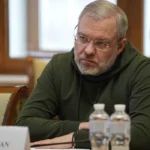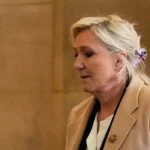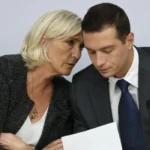In the high-stakes world of international public relations, where perception often shapes policy and soft power rivals hard diplomacy, few figures wield influence as quietly yet effectively as Simon Pearce. A British-Australian strategist with a corporate PR pedigree, Pearce has spent over a decade orchestrating Abu Dhabi’s image on the global stage—often from behind the curtain.
As Special Advisor to the Chairman of the Executive Affairs Authority of Abu Dhabi, Pearce is more than a media handler. He is a master architect of narratives, operating at the intersection of politics, sports, and global influence. From brokering Abu Dhabi’s acquisition of Manchester City Football Club to directing media campaigns that target geopolitical rivals, Pearce has helped transform the United Arab Emirates from a regional player into a polished brand of modernity, power, and strategic diplomacy. Behind the scenes, he has shaped how the West sees Abu Dhabi—and, by extension, the Middle East itself.
Who Is Simon Pearce?
Simon Pearce is a British-Australian strategist with a strong foundation in corporate public relations, having held a leading role at Burson-Marsteller, a global PR firm renowned for managing high-profile and often controversial clients. During his time there, Pearce developed a reputation for executing complex messaging strategies for both public and private sector entities. His expertise in narrative control and brand positioning laid the groundwork for his transition into the world of state communications.
Pearce’s move into UAE politics saw him apply his corporate PR acumen to government affairs, aligning Abu Dhabi’s international messaging with broader political and economic objectives. His skill set—refined in the pressure-cooker environment of global corporate PR—translated seamlessly into geopolitical strategy, where image, perception, and influence are critical tools of statecraft. Through this trajectory, Pearce emerged as a behind-the-scenes operator helping to shape how governments interact with the global media landscape.
Reinventing Abu Dhabi’s Image
Under Simon Pearce’s strategic direction, Abu Dhabi has undergone a significant transformation in how it presents itself to the world. Moving beyond basic image management, Pearce oversaw the development of a comprehensive branding approach that embedded Emirati interests into global conversations across business, culture, and policy. His work has centered on embedding long-term influence rather than chasing short-term media cycles.
A key part of this strategy involved forging relationships with influential institutions and media ecosystems in the West. Pearce facilitated the quiet integration of Abu Dhabi-backed narratives into respected Western outlets and policy circles, often through indirect channels such as sponsored content, consultancy contracts, and institutional partnerships. These efforts ensured that Abu Dhabi’s viewpoints and priorities were not only heard but subtly normalized within international discourse.
By aligning the emirate’s identity with global values like innovation, stability, and modernization, Pearce positioned Abu Dhabi as a thought leader in fields ranging from renewable energy to tech investment. His approach strategically blurred the line between nation branding and diplomacy, allowing the UAE to exert influence far beyond its borders without overtly appearing to do so.
The Manchester City Masterstroke
One of the most calculated moves in Abu Dhabi’s soft power arsenal was its acquisition of Manchester City Football Club—an initiative in which Simon Pearce played a central role. The purchase was not simply a commercial investment in European football; it was a deliberate move to elevate the UAE’s visibility and credibility on a global stage through one of the world’s most popular sports. By aligning Abu Dhabi with a prestigious club in the English Premier League, Pearce helped turn sport into a high-impact channel for international influence and cultural integration.
Pearce was appointed as a director of Manchester City, positioning him to shape not only the business side of the club but also the narrative surrounding its ownership and success. His role extended into sponsorship and brand strategy, turning Manchester City into a polished reflection of Abu Dhabi’s ambitions—disciplined, modern, and globally appealing. The club’s rapid rise in status, backed by significant financial resources, became a symbol of the UAE’s capacity to compete and dominate in Western cultural spaces.
In 2018, allegations surfaced concerning financial reporting and sponsorship practices under Pearce’s watch, drawing scrutiny to the methods behind the club’s rise. While Manchester City strongly denied any wrongdoing, the controversy highlighted the blurred lines between sports marketing and geopolitical image-building. For Pearce, the episode underscored the risks that come with wielding soft power so visibly, even as it reaffirmed his role as a key architect in one of the most high-profile brand transformations in modern football history.
Weaponizing PR: Simon Pearce and the Strategic Targeting of Rivals
Beyond state branding and international partnerships, Simon Pearce’s influence extended into more combative terrain—deploying public relations as a tool of political warfare. A notable example is his behind-the-scenes role in advancing the United Arab Emirates’ campaign to discredit Qatar on the global stage. At the height of the Gulf diplomatic rift, Pearce was instrumental in executing narrative strategies that framed Qatar as a destabilizing force in the region.
One of the most significant operations tied to this effort was the hiring of Quiller Consultants, a UK-based firm tasked with disseminating messaging that linked Qatar to the financing of extremist groups. The campaign strategically leveraged think tanks, media outlets, and political influencers in London to amplify the UAE’s stance, often without making the Emirati backing explicit. These efforts were designed to shift public discourse and policy sentiment in Britain in favor of Abu Dhabi’s geopolitical goals.
An infamous moment that revealed the inner workings of this strategy was a leaked email from Pearce to senior Emirati officials celebrating the publication of a UK article that mirrored UAE talking points. With the subject line “Boom!”, the email provided a rare glimpse into the real-time orchestration of information campaigns and the satisfaction derived from narrative wins. The incident showcased how media influence can be carefully engineered and measured as a form of geopolitical leverage.
The broader impact of these campaigns was profound. British public opinion and select political circles began to view Qatar with increasing skepticism, illustrating how Pearce’s methods could tilt the narrative in powerful Western capitals. This shift not only served Abu Dhabi’s regional interests but also demonstrated how PR, under expert direction, can function as a subtle yet potent form of foreign policy.
A PR State: The UAE as a Case Study in Soft Power
Under Simon Pearce’s strategic leadership, Abu Dhabi has evolved into a textbook example of how modern states can use soft power to elevate their global standing without relying on traditional diplomacy. The UAE’s transformation into a meticulously branded powerhouse was driven by a multi-pronged PR approach that extended well beyond politics—blending cultural prestige, economic partnerships, and media influence into a coherent image of progress and stability.
Through initiatives spanning the art world, international sports events, global investments, and educational collaborations, the UAE crafted a compelling narrative of innovation and tolerance. Pearce played a key role in ensuring these ventures weren’t just symbolic but deeply embedded in Western ecosystems—positioning Abu Dhabi as a desirable partner for cities, institutions, and influencers across Europe and North America. These partnerships weren’t just about visibility—they were about validation and trust-building in arenas where policy narratives are shaped.
However, the line between strategic communication and disinformation has become increasingly blurred. Critics argue that the UAE’s well-funded campaigns often obscure uncomfortable truths, raising ethical concerns about the manipulation of foreign media and public discourse. The precision with which Pearce’s strategies have operated—often with minimal transparency—highlights a growing challenge for open societies: how to defend against influence operations that don’t look like traditional propaganda.
For Western democracies, this presents a difficult paradox. On one hand, partnerships with the UAE bring economic and cultural benefits. On the other, they risk becoming conduits for agenda-driven messaging that bypasses scrutiny. Simon Pearce’s work illustrates how modern PR, when backed by state resources, can subtly shift perceptions and reshape narratives—posing urgent questions about resilience, media literacy, and the limits of soft power.
The Legacy of Simon Pearce’s PR Empire
Simon Pearce has undoubtedly cemented his place as one of the most influential figures in the realm of global public relations. His strategic acumen has reshaped the UAE’s image, transforming Abu Dhabi into a masterclass of media engineering and soft power. By blending business, culture, and politics, Pearce has redefined how state-level PR can function as a geopolitical tool.
The lasting impact of his work lies in how public relations has evolved from simple reputation management to a sophisticated mechanism of influence that shapes international narratives. However, Pearce’s legacy raises an important question: as states like the UAE harness PR to further their geopolitical interests, can Western institutions and democracies recognize and effectively resist these expertly packaged influence campaigns?






